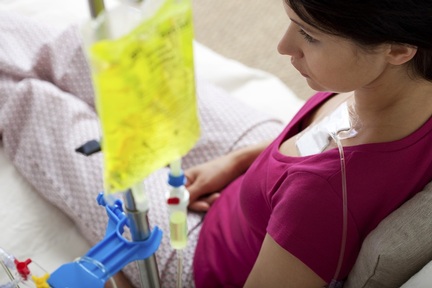Patients miss out on targeted cancer drugs
Thousands of cancer patients in England do not receive an annual test to see if they can benefit from personalised treatments, according to a new report compiled by Cancer Research UK.
The report reviewed the National Health Service’s (NHS) molecular diagnostic testing service for cancer patients. The tests identify the genetic faults underpinning a patient’s cancer, some of which can be targeted with certain therapies. The report focused on patients with skin, lung and bowel cancer, where targeted drugs are already available on the NHS.
Cancer Research UK’s head of policy, Emma Greenwood, said: “In some cases, patients have missed out on treatments that could have given them priceless extra months with their friends and families.”

Statistics, published by Cancer Research UK estimate that more than 24,000 molecular diagnostic tests were not carried out in hospitals across England in 2014. In lung and bowel cancers alone, around 16,000 eligible patients were not offered the tests and about a quarter of those patients could have received targeted treatments. This meant that an estimated 3,500 lung and bowel cancer patients missed out on medicines that could have changed the course of their disease.
The report found that the main reasons for missed tests are the cost – there is a lack of dedicated funding available for them – and doctors’ poor awareness of targeted treatments and testing. Molecular diagnostic tests have been available since 2008 and are routinely available in many countries. The previous government made a commitment in its 2011 cancer strategy to develop a national commissioning structure for the tests and this has featured again in the new cancer strategy for England, announced earlier in the summer.
Cancer Research UK have estimated that an additional £13million is required to meet the demand for tests and to ensure the services are kept up to date as new treatments become available and new biomarkers are found that can be added to the tests.
Professor Peter Johnson, Cancer Research UK’s chief clinician, said: “It’s lamentable that routine molecular diagnostic testing still hasn’t been established, more than two years after Cancer Research UK showed how it can be done with our stratified medicine programme. Despite much talk about innovation in care, the NHS is once again lagging behind, and patients aren’t getting tested to see if they might benefit from new types of treatment.
“Molecular diagnostic tests can help doctors to choose more tailored treatments that may improve survival for their patients, allow patients to take part in clinical trials and potentially reduce side effects from less effective treatments: they are not an optional extra.”
Commenting further on the application of diagnostic testing within the NHS, Ms Greenwood continued: “We need to see greater investment and leadership from NHS England to organise national commissioning of molecular diagnostic testing. And, if action isn’t taken, England will fall behind as these tests are now routine in many other countries.
“In some cases, patients have missed out on treatments that could have given them priceless extra months with their friends and families. In order to make sure thousands of patients don’t continue to miss out, it’s essential that the Government acts on the recommendations in the new cancer strategy, which calls for NHS England to properly commission these tests.”
Latest News
 29-Jul-24
Dementia Bus gives carehome.co.uk staff insight into life with dementia
29-Jul-24
Dementia Bus gives carehome.co.uk staff insight into life with dementia
 01-Mar-24
Find out the top care homes in 2024
01-Mar-24
Find out the top care homes in 2024
 21-Mar-23
UK's top care homes in 2023 revealed
21-Mar-23
UK's top care homes in 2023 revealed
 03-Jan-23
carehome.co.uk launches free care helpline
03-Jan-23
carehome.co.uk launches free care helpline
 13-Dec-22
5 mins with Emily Whitehurst, chief operating officer for Constantia Healthcare
13-Dec-22
5 mins with Emily Whitehurst, chief operating officer for Constantia Healthcare